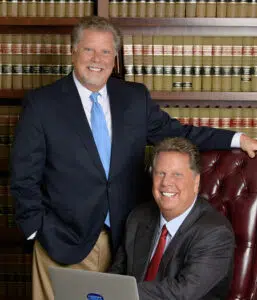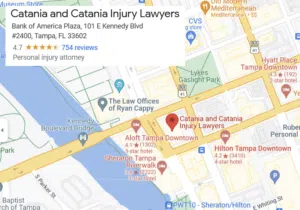
Before filing a personal injury lawsuit, our legal team files a personal injury claim with the insurance company for the at-fault party. We seek compensation for your damages and financial losses. If the at-fault parties refuse to negotiate in good faith, we may file a personal injury lawsuit.
Several steps are involved in filing a lawsuit for a car accident, medical malpractice lawsuit, slip and fall accident, or other personal injury cases. While each personal injury case is unique, many of the steps involved in seeking compensation for accidents and injuries are similar.
Table of Contents
Seeking Medical Attention is the First Step in the Claims Process
After an accident or injury, seeking medical attention for your injuries is crucial. One of the essential steps required to win a personal injury case is proving that another party caused your injuries. You need medical records to meet this requirement.
Failing to seek prompt medical attention could jeopardize your personal injury case before it begins. Therefore, see a doctor immediately after an injury or accident. Then, consult our personal injury lawyers as soon as possible to discuss your legal options for recovering compensation for your injuries.
Steps for Filing a Personal Injury Lawsuit
When you meet with our lawyers to discuss your case, we analyze the circumstances that led to your injury to provide an assessment of your legal options. If the facts support a claim under Florida personal injury law, we will proceed with your case.
Steps involved in filing a personal injury lawsuit include:
Gathering Evidence
Our legal team investigates the accident or situation that led to your injury. We gather evidence to prove fault and liability.
Evidence in a personal injury case could include, but is not limited to:
- Accident reports and police reports
- Physical evidence from the accident scene
- Medical records and statements from physicians
- Photographs and videos of the accident
- Statements from eyewitnesses
We may consult and retain expert witnesses to assist in the investigation. Expert witnesses may also testify at a trial.
Preparation of Settlement Demand Letter
After we gather all evidence and you complete medical treatment, we prepare a settlement demand letter. The letter explains the legal reasons why the other party is liable for your injuries and damages. It also describes your injuries and damages. Finally, the letter demands a specific amount to settle your injury claim.
A settlement demand letter may also include copies of medical records, statements, and other evidence that supports our claim. The goal is to give the insurance company enough information to convince it that you are legally entitled to the amount of our settlement demand.
Settlement Negotiations
The insurance company may accept our settlement demand and resolve your claim. However, in many cases, the insurance company makes a counteroffer. At that point, settlement negotiations could result in numerous “back and forth” offers to settle the case.
During settlement negotiations, our lawyers may meet with the insurance company to discuss settlement. We may also agree to retain a mediator to facilitate negotiations. Because each case is different, settlement negotiations may take many different paths.
Filing a Personal Injury Lawsuit
Before filing a personal injury lawsuit, our lawyers discuss the pros and cons of filing a lawsuit with you. If you decide you want to file a lawsuit, the first step is for our lawyers to prepare and file a complaint. The complaint contains a description of the facts of the case, the applicable Florida laws, and a demand for damages.
After filing the complaint with the court, it is served on the defendant. The defendant is the party who caused your injury. In most cases, the liability insurance company retains a defense lawyer to handle the case.
The defendant files an answer responding to our allegations. The defendant may assert one or more defenses, including contributory fault. We have the burden of proving negligence by proving causation and damages.
Discovery Phase
During the discovery phase, each party has the right to gather additional evidence regarding the case from the other party, witnesses, and experts.
Tools that we use to gather evidence during discovery include:
- Depositions
- Subpoenas
- Interrogatories
- Request to Produce
- Request for Admissions
The discovery phase could take several months to complete.
Settlement Discussions
Generally, after completing discovery, the parties attempt to settle the lawsuit before trial. Discovery allows both parties to see the evidence that will be presented in court. If our evidence is strong, the insurance company may decide that it is better to settle the case instead of allowing a jury to hear the matter.
On the other hand, we could also decide that taking the case to a jury is too risky. We provide a detailed analysis of the case and our legal opinion regarding the chance of winning in court. The decision to proceed is yours to make.
Pre-Trial Motions
Pre-trial motions settle issues regarding procedure and law. These matters are not related to facts that a jury must decide. Motions may relate to the admissibility of evidence or calling witnesses.
Trial and Appeals
At the trial, both parties present their evidence to the jury through witnesses. Each side has the chance to call any number of witnesses to testify. The other side may cross-examine each witness.
Jury members must decide what to believe. They are the “triers of fact” in a jury trial. First, jurors listen to the evidence and follow the instructions from the judge regarding the relevant laws that apply to the case. Then, the jurors discuss the case amongst themselves.
Each juror must decide whether they believe the defendant committed the alleged acts and is liable for the plaintiff’s injuries and damages. If all jurors vote in favor of the plaintiff, they must decide how much money to award the plaintiff for damages.
Either party may appeal the decision if they do not agree with the outcome of the trial. An insurance company may appeal a decision for a large judgment if it believes it can overturn the decision on appeal or have the judgment reduced on appeal.
You will not receive any money until all appeals are exhausted. If the other party refuses to pay a judgment, we may need to take further legal action to collect the judgment.
Schedule a Free Consultation With Our Tampa Personal Injury Lawyers
Many personal injury cases settle without filing a personal injury lawsuit. However, our Tampa personal injury attorneys are talented negotiators and aggressive trial lawyers. In either case, we diligently pursue the compensation you deserve for your injuries and damages.
Contact our law firm to schedule a free consultation to discuss your case with a Tampa personal injury attorney.




